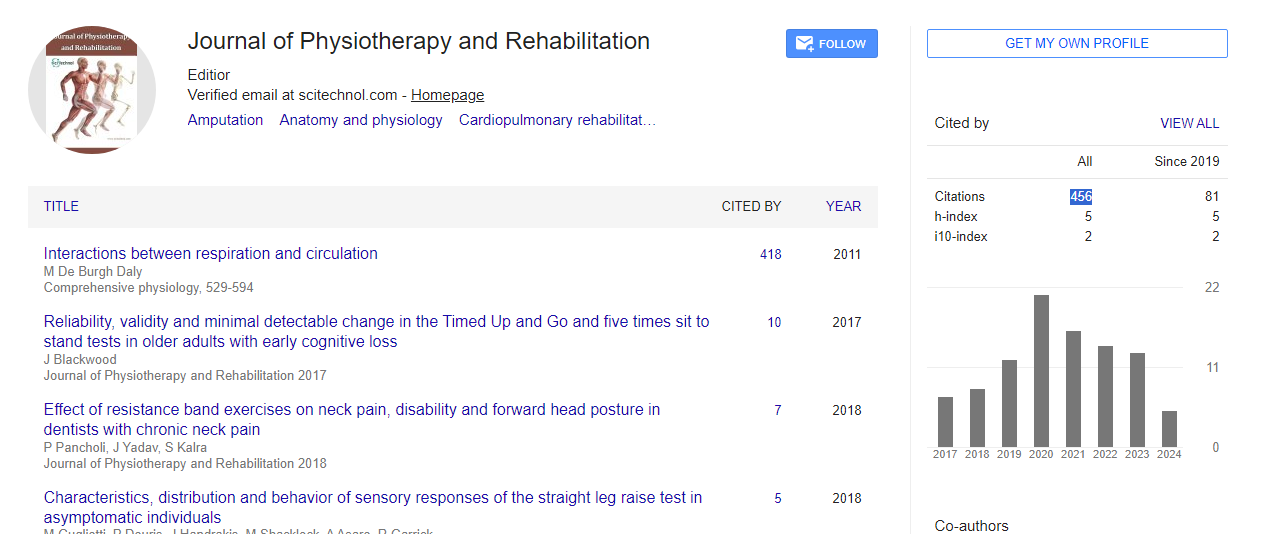Research Article, J Physiother Rehabil Vol: 4 Issue: -1
Using the International Classification of Functioning, Disability, and Health (ICF) to find out about impairments affecting falls self-efficacy in community-dwelling older adults in India
Abstract
Physiological and psychological consequences of fear of falling and low falls self-efficacy are important, because they can substantially reduce quality of life. We investigated people aged 55 and over living in India. Fall-related self-efficacy was examined using the Modified Falls Efficacy Scale. Certain Categories from International Classification of Functioning (ICF) were selected as potential predictors of falls. The least absolute shrinkage and selection operator was used for multivariable covariate selection. Sixty-one percent (61%) participants reported low fall-related self-efficacy. Predictors found from ICF were pain in head and neck, increased blood pressure, maintenance of blood pressure, endurance of all muscles of the body, gait pattern functions, muscles of thigh, knee joint, and balance, depression. We identified a small but important spectrum of variables as predictors of low fall-related self-efficacy. Most of these variables identified as predictors of low fall-related self-efficacy might be amenable to exercise programs or medication review.
 Spanish
Spanish  Chinese
Chinese  Russian
Russian  German
German  French
French  Japanese
Japanese  Portuguese
Portuguese  Hindi
Hindi 